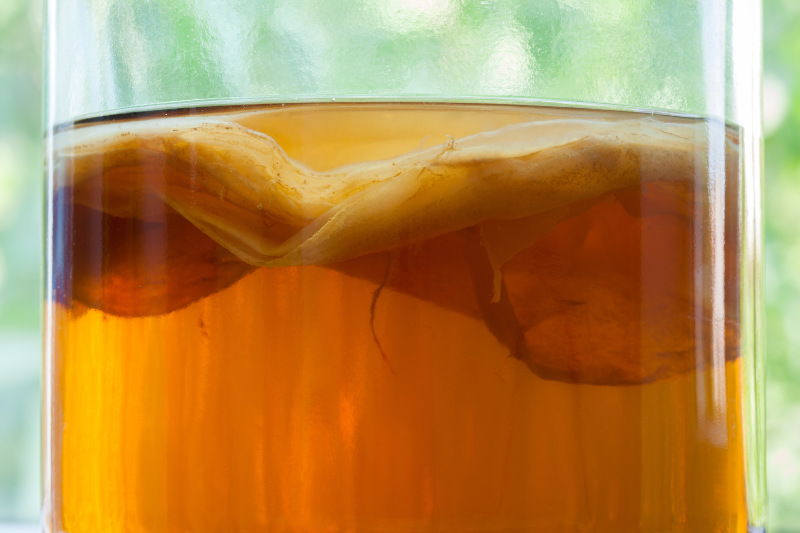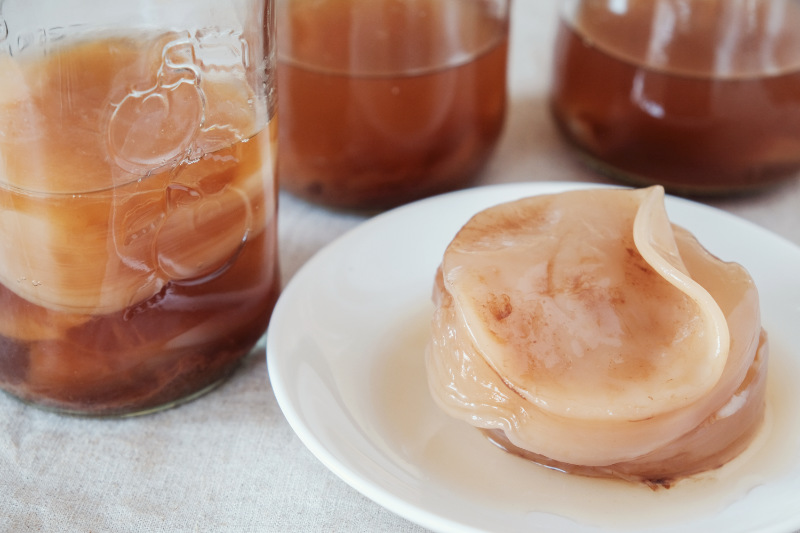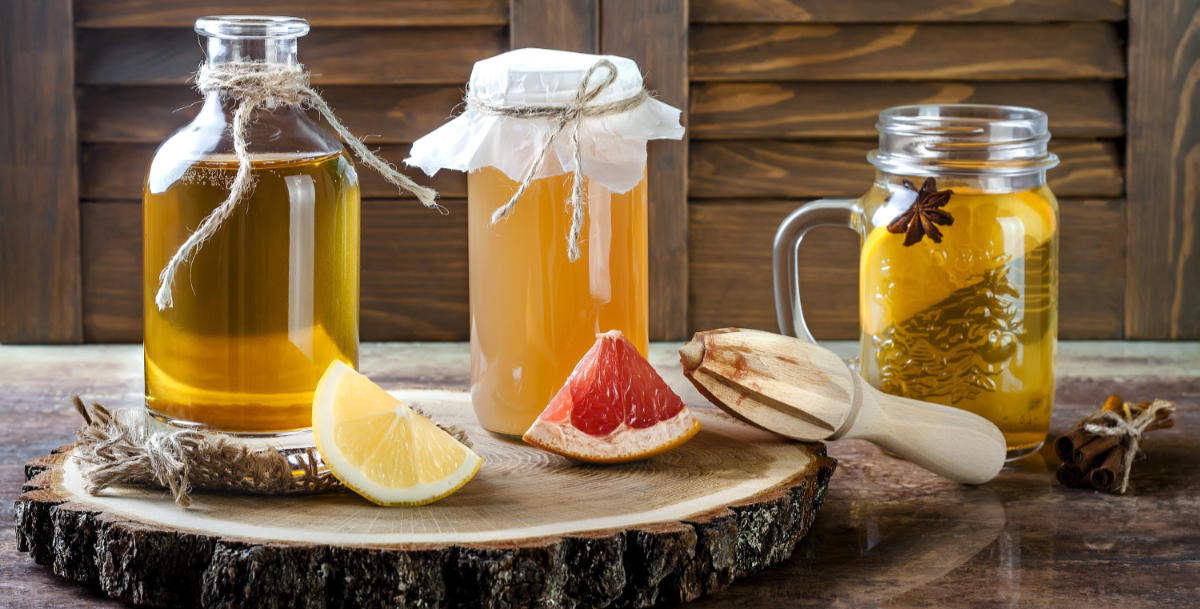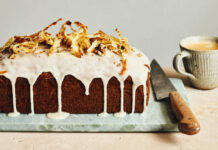Having a living concoction growing in a jar on your kitchen counter sounds more like the description of a new horror film than the latest health beverage craze. And with a history stretching back to 200 BC, kombucha is anything but new. But the fizzy fermented tea with an array of eyebrow-lifting health claims attached to it has attracted lots of attention int he past year; food bloggers are raving about it, health shops and supermarkets are stocking it, and dedicated kombucha bars are starting to crop up around London.
Is kombucha a new drink?
The drink originates from China, where it has been made for its health benefits for over two millennia. Supposedly named after Dr. Kombu, who centuries later brought the drink to cure the ailing Japanese Emperor Inkyo, it didn’t reach Europe until the 20th century.
The sugary tea includes a live bacteria and yeast culture, similar to a sourdough starter and is being cooked up by home brewers and trendy stores up and down the country.
What is kombucha good for?
Kombucha has been praised by the health-conscious, mostly for the abundance of probiotics which emerge in the fermentation process and supposedly work wonders for your gut health.
Recent research has found that having healthy gut bacteria improves our mood and gives us healthier skin, and kombucha could be the key – it’s believed to improve digestive health and clean out our guts.
Discover the secret to a healthy gut – 8 prebiotic foods that boost wellness.

As well as being packed with probiotics, kombucha includes antioxidants, which boost heart and liver health, and may be able to improve your immune system by killing harmful bacteria. Studies have suggested the mixture might help maintain healthy blood sugar levels and cholesterol. It’s been credited with curing everything from weight loss to acne, and some even claim it reduces the risk of cancer, but no reputable studies have backed that up yet.
Some are even starting to swap booze for the ‘booch’ – as eager disciples call it. The drink provides “a delicious and complex alternative to alcohol when you don’t feel like boozing,” says Adam, and internet foodies seem to agree. For those who want both, recipes for kombucha martinis have started to appear online – perhaps it’s only a matter of time until kombucha creeps its way into your nights out.
Where to buy kombucha?
If kombucha sounds like your cup of tea, you’re in luck – because it’s becoming easier to get hold of by the minute. Jarr Kombucha (jarrkombucha.com) in Hackney is Europe’s first kombucha tap room and stores are stocking their stuff across London.
“Kombucha is a unique product that challenges people’s assumptions of what a fizzy drink can be,” Adam Vanni, the venture’s co-founder explains. “The perfect balance of both sour and sweet is intriguing initially but then keeps you coming back for more.”
How to make kombucha
The most-common method of making it is mixing black or green tea with a decent helping of sugar. It’s then fermented for around two weeks using a symbiotic culture of bacteria and yeast, usually referred to by the far catchier term SCOBY. The result is a sparkling drink with a vinegary, sour taste that can be balanced out with (more) sugar.

If you want to roll your sleeves up and fully jump aboard the bandwagon, you can DIY kombucha at home. You don’t need a lab coat, but you should use caution – batches of any fermented bacteria vary, and inexperienced brewers could see their drinks attract contaminants like mould or fungi.
There’s a debate over whether home-brewers should use the pasteurisation process, which removes many of the benefits, but could be safer. Fortunately, if you want to try the stuff before you get bogged down in the arguments, start-up LA Brewery (lebrewery.co.uk) makes and bottles their own and ships them across the country.
It’s certainly an acquired taste – and sight, and smell. But the kombucha industry is worth over one billion dollars in the States, and stores are stocking up across the UK, so the craze shows no signs of abating.
You may not expect the newest health fad to look like a monster from Stranger Things, but if you want to get aboard a new trend that could provide a health-boosting alcohol alternative, kombucha is calling your name.
Learn how to make kefir – a cultured milk drink – at home.







































































